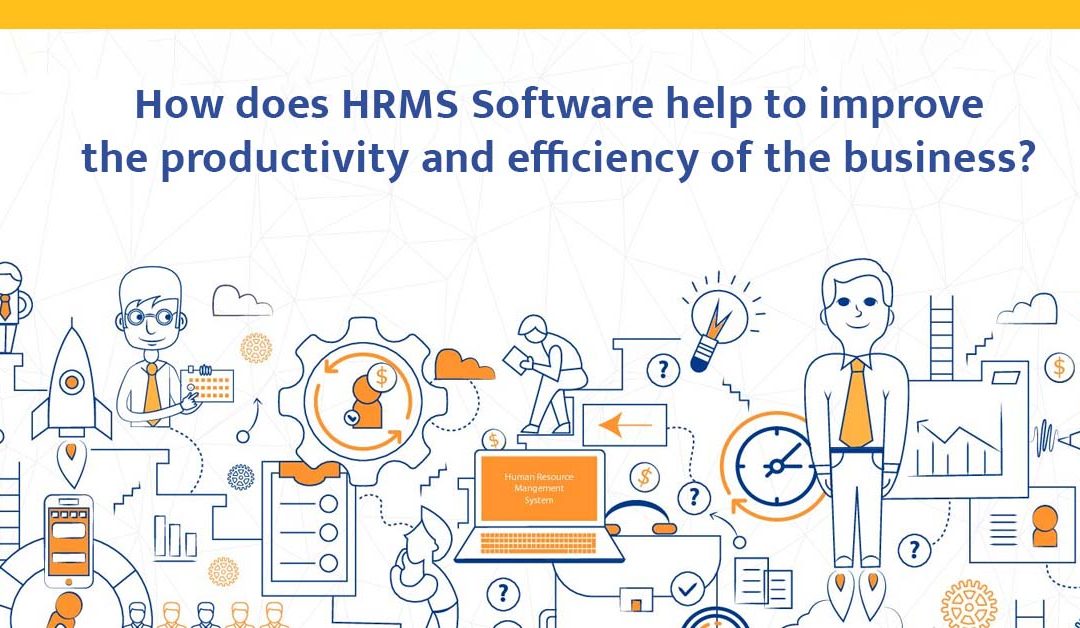Today, when there is a sudden need for a dynamic remote work environment, advanced technological ecosystems, and a workforce that constantly requires efficient strategies and processes, you have to be on your toes.
Unlike before, organizations need to adopt and rely on an HRMS software or human resource management system solution to be on top of their new redefined role.
As a result, firms still have the option of moving to a more consolidated and well-integrated HR solution to develop superior talent analytics, which will help them transform their talent strategy and immediately increase employee engagement and performance.
Let’s take a look at some common HR difficulties and how HRMS software may help businesses overcome them and increase their productivity and efficiency.
1 Handling routine HR tasks
The HR department in many firms is in a pickle. HR managers want to improve the working environment for their workers, but they are often swamped with paperwork and administrative chores such as collecting personnel information and responding to requests. Companies can utilize a Human Resource Management System to handle these mundane duties.
2 Monitors KPIs
A Key Performance Indicator (KPI) is a quantitative statistic that demonstrates how well employees or an organization as a whole are meeting their goals. Only the most important metrics should be measured, and an HRMS can help with this.
3 Manages employees efficiently
The overall efficiency of a corporation can be improved by reducing repetitive administrative chores and automating some procedures. Most HRMS make it simple to collect data centrally, automate business procedures, and provide visibility through charts and graphs.
4 Improves employee self-service
One of the most in-demand aspects of modern HRMS software is employee self-service. Employees frequently inquire about specific terms, conditions, pay, leave, and other matters.
5 Is cost-effective
You’ll save a lot of money for your organization if you replace time-consuming data entry chores with automated technologies. Beyond the initial cost reductions, automation eliminates the use of paper by digitizing all processes.
Employees are required to monitor and track attendance and leave operations, just as they are for payroll management. Businesses can go digital instead of hiring individuals to oversee these procedures.
6 Eliminates human error
Human mistake is another major source of avoidable corporate expense. Automating HR procedures decreases the possibility of common errors such as double entries and allows employees to double-check their work for typos. Thus rather than appointing an additional person for doing this task, HRMS will help to do all the activities.
7 Offers privacy and data security
Investing in an HRMS is a critical step in guaranteeing employee data security. An employer is responsible for preventing the misuse of personal employee data as well as securing that data from outside dangers.
By encrypting personal information, an HR management system helps safeguard it from hackers and unauthorized users.
Furthermore, an HRMS includes payroll capability, which allows for a more secure payroll processing by safeguarding sensitive data with password authorization and storing it on internal hardware.
Conclusion
As a result, HRMS software is well-positioned to help businesses succeed. Choosing the proper software allows you to relax and concentrate solely on your day-to-day business operations and strategies.
As a business grows, it frequently confronts challenges with scaling, workflow optimization, and process automation. Managing a company’s human resources becomes increasingly difficult as the number of employees grows.
You can use a Human Resource Management System (HRMS), specialist software that assists with HR activities, to cover all day-to-day HR functions as well as personnel and payroll demands. In this way, businesses need an up-to-date HRMS system to improve productivity and efficiency.



